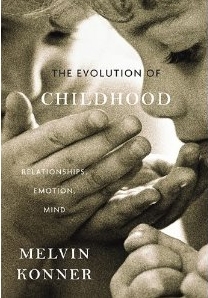- HOME
- INTRO TO THE FORUM
- BADLY WRITTEN, BADLY SPOKEN
- GETTING
TO KNOW ENGLISH - PREPARING FOR ENGLISH PROFICIENCY TESTS
- GOING DEEPER INTO ENGLISH
- YOU ASKED ME THIS QUESTION
- EDUCATION AND TEACHING FORUM
- ADVICE AND DISSENT
- MY MEDIA ENGLISH WATCH
- STUDENTS' SOUNDING BOARD
- LANGUAGE HUMOR AT ITS FINEST
- THE LOUNGE
- NOTABLE WORKS BY OUR VERY OWN
- ESSAYS BY JOSE CARILLO
- No Earthly Reason Why The Clergy Should Be Bad In English Grammar
- Here’s Hoping For Better English In This Year’s Graduation Rites
- Looking Back to Easter Sunday’s Earthly and Celestial Foundations
- Our Need For Thinking National Leaders With The Gift Of Language
- The Heavy Price of Misplacing One’s Trust and Confidence
- The Three Basic Word-Positioning Principles For Emphasizing Ideas
- ABOUT JOSE CARILLO
- READINGS ABOUT LANGUAGE
- TIME OUT FROM ENGLISH GRAMMAR
- NEWS AND COMMENTARY
- BOOKSHOP
- ARCHIVES
TIME OUT FROM ENGLISH GRAMMAR
This section features wide-ranging, thought-provoking articles in English on any subject under the sun. Its objective is to present new, mind-changing ideas as well as to show to serious students of English how the various tools of the language can be felicitously harnessed to report a momentous or life-changing finding or event, to espouse or oppose an idea, or to express a deeply felt view about the world around us.
The outstanding English-language expositions to be featured here will mostly be presented through links to the websites that carry them. To put a particular work in better context, links to critiques, biographical sketches, and various other material about the author and his or her works will usually be also provided.
I hope you’ll enjoy the new selections that will be presented here each week.Joe Carillo
A new Darwinian theory of human development
In a landmark new book, The Evolution of Childhood: Relations, Emotion, Mind (Belknap Press of Harvard University Press, 960 pages), anthropologist and physician Melvin Konner makes a wide-ranging Darwinian interpretation of human development. Looking at the entire range of human evolutionary history, Konner tells how the cross-cultural and universal characteristics of human growth from infancy to adolescence became rooted in genetically inherited characteristics of the human brain. He draws on modern knowledge from ethnography, sociobiology, neuroscience, and social psychology to explain why human beings take an extraordinarily long time to grow up, and why they have to go through extended periods of dependency before they can live on their own. He then makes a compelling argument that play may be the primary means nature has found to develop the human brain.

In a review of The Evolution of Childhood in the May 10, 2010 issue of the Atlantic Magazine, Benjamin Schwarz says that ultimately, Konner is attempting to construct a sort of theory that encompasses all of human life. “The evolutionary processes he describes are the way in which at every level—the genome, the nervous system, society, and culture—we, who carry along information accumulated over billions of years, continually interact with the environment, and thereby learn and change in response to it,” Schwarz says. He then describes The Evolution of Childhood as “the flower of an astoundingly productive and innovative period of scholarship on evolutionary behavior,” one that “sums up a generation’s worth of thinking and research.” To read this book, he says, “is to be in the company of a helpful and hopeful teacher who is eager to share what he’s found.”
Read Benjamin Schwarz’s “Play’s the Thing” in the Atlantic Magazine now
ABOUT THE AUTHOR:
Melvin J. Konner, M.D, PhD, is Samuel Candler Dobbs professor of anthropology, neuroscience, and behavioral biology at Emory University. He studied at Brooklyn College, earned his doctorate in biological anthropology from Harvard University in 1973, and did postdoctoral work at the Laboratory of Neuroendocrine Regulation at the Massachusetts Institute of Technology. He spent two years doing fieldwork among the Kalahari San or Bushmen, studying infant development and the hormonal mechanism of lactational infertility. After six years on the Harvard faculty, he attended Harvard Medical School (1985) and moved to Emory as department chair. He has held NIMH and NSF research grants, and has been a fellow of the Center for Advanced Study in the Behavioral Sciences, the John Simon Guggenheim Memorial Foundation, the Social Science Research Council, and the Foundations Fund for Research in Psychiatry.
RELATED READING:
In an article for the April 15, 2010 issue of Scientific American, “Motivated Multitasking: How the Brain Keeps Tabs on Two Tasks at Once,” Katherine Harmon writes about new research that shows how the brain can simultaneously keep track of two separate goals even while it is busy performing a task related to one of the aims. The study was undertaken by coauthors Etienne Koechlin and Sylvain Charron, both of the cognitive neuroscience laboratory at the French National Institute for Health and Medical Research (Inserm) in Paris. From the results of their study, Harmon reports, an explanation can be inferred for why people tend to prefer binary options, such as yes-or-no questions and if-then statements. “Humans have problems deciding between more than two alternatives,” Koechlin explains. “A possible explanation is that they cannot keep in mind and switch back and forth between three or more alternatives.”
Read Katherine Harmon’s “Motivated Multitasking” in Scientific American now!






